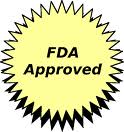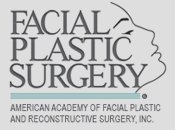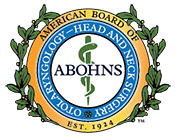Posted September 13, 2010 in Blog, Uncategorized, Zerona
The FDA recently approved the Zerona laser. Unfortunately, FDA approval of devices does not involve testing the device for effectiveness. Today I read a well written blog entry by Orlando, Florida plastic surgeon Dr. Thomas Fiala. Dr. Fiala is obviously an ethical physician who researches the science, and effectiveness of a treatment before offering his patients something of highly questionable value. With credit to Dr. Fiala, I include his entry below:
The FDA’s 510(k) approval process: helpful or not?

While the clearance letter is great for the Zerona people, who can now market the device in the U.S., it brings up the whole question of how exactly the FDA approves new medical devices. It turns out that the process for devices is quite different than the rigorous process for new pharmaceuticals.
Most devices are approved using the so-called 510(k) process. In simple terms, if there’s an existing gadget that’s pretty similar to the new one, and that one’s OK, then the FDA will clear the new one, too. If they are different, the FDA will make a new category. But they don’t test the devices for effectiveness. And that’s the problem.
If you look at the letter from the FDA that the Zerona people are touting (link), there’s nothing in it about any data on efficacy – how well the Zerona actually melts fat. The letter is all about which classification the device goes into. This is a lot like two librarians arguing over the old Dewey decimal system coding for a particular book. It doesn’t mean that the book is well written. It just means the librarians now know where to put it on the bookshelf! (My apologies to any librarians!)
Personally, I am unconvinced by the Zerona. I’m not going to offer it to my patients. Your mileage may vary.
What also bothers me is the way this device is going to be marketed. The Zerona crew will quote some internally-generated research statistic, and then give it the “FDA approved” stamp of approval, as though the FDA checked their research. I think that’s misleading.
Fortunately, the FDA does a considerably better job when it comes to making sure that drugs are both safe AND effective. But even that process has its problems.
Take-home lesson: approach manufacturer’s claims of FDA approval with a big grain of salt. FDA approval does not mean that the machine really does everything the saleman says it does.
Dr Persky is located in Encino, California but services all of Los Angeles and the San Fernando Valley. Including, Beverly Hills, Hollywood, Santa Monica, Malibu, Sherman Oaks, Studio City, Calabasas, Woodland Hills, Tarzana and Agoura Hills and more.




